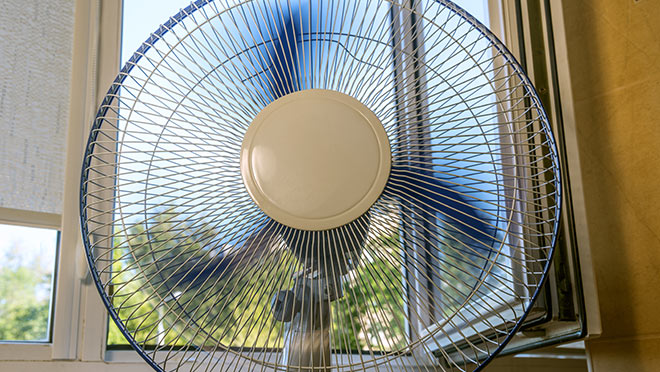Some best bets for lowering your energy bills
Start by looking at how you cool your home in summer
Gas or electric heat? New windows or old? These are some of the questions to consider in your quest to lower your electricity use, either by changing the way you use electricity, or by making low-cost efficiency upgrades to your home.
In the summer, cooling your home with air conditioning can erase any energy bill savings you made earlier in the year. So if you can spare a few dollars, consider adding a floor or desk fan, learn how to use them (watch the video above) and make sure you know how to keep your home cooler with a few tricks.
If you still have those old incandescent bulbs in your home, replace them with LEDs as soon as possible. Even if they're not burned out, they're using at least three times the electricity, and that adds up over a year. And it's going to be a long time before you replace any ENERGY STAR® LED bulbs, which can last 20 years or more.
For electrically-heated homes in B.C., heating can account for up to 50% or more of your total BC Hydro bills over the year. So if you tend to see a big jump in your bills in late fall and winter, maybe it's time to plug the leaks in your home.
Weather-stripping around doors, applying window insulator film for the coldest months, and installing outlet and switch gaskets, can go a long way to lowering bills and increasing comfort. Also look closely at how you manage your thermostat – reducing it by one or two degrees, or even more overnight or when you're away from the home – can save you $60 to $120 a year.
Hot water can be the hidden energy guzzler in the home. Fix dripping taps and add aerators, which cut the amount of water coming out of the tap without compromising the flow. And replace any showerheads with more efficient versions, recognizing that not all showerheads are created equal.
In the kitchen, get a fridge/freezer thermometer to ensure your fridge temperature is between 2°C and 3°C (35°F to 38°F), and that your freezer is set between 16° and -18°C (3.2°F to 0°F). And both run more efficiently when full. In the summer, fill your freezer with milk cartons or jugs, water bottles big and small (leaving room for expansion). Not only will you be improving your fridge and freezer's efficiency, you'll be prepared for park or beach adventures with ready-made block ice for the cooler and ice cold drinking water.
We also have 21 no-cost tips that combined, could save you hundreds of dollars a year on your energy bills.
You can install it (and if you need help, here's Dave)
Most low-cost energy upgrades or changes in your home are fairly easy to do, but it can be tricky. And that's where Dave can help.
BC Hydro's energy saver extraordinaire shows you how to check for drafts in your home, install several low-cost products, and how to use fans efficiently in the summer.
- DIY with Dave: How to use fans efficiently
- DIY with Dave: How to check for drafts in your home
- DIY with Dave: How to install foam insulator pads
- DIY with Dave: How to install foam and V-seal weather stripping
- DIY with Dave: How to install tap and shower aerators
- DIY with Dave: How to check the efficiency of your fridge
